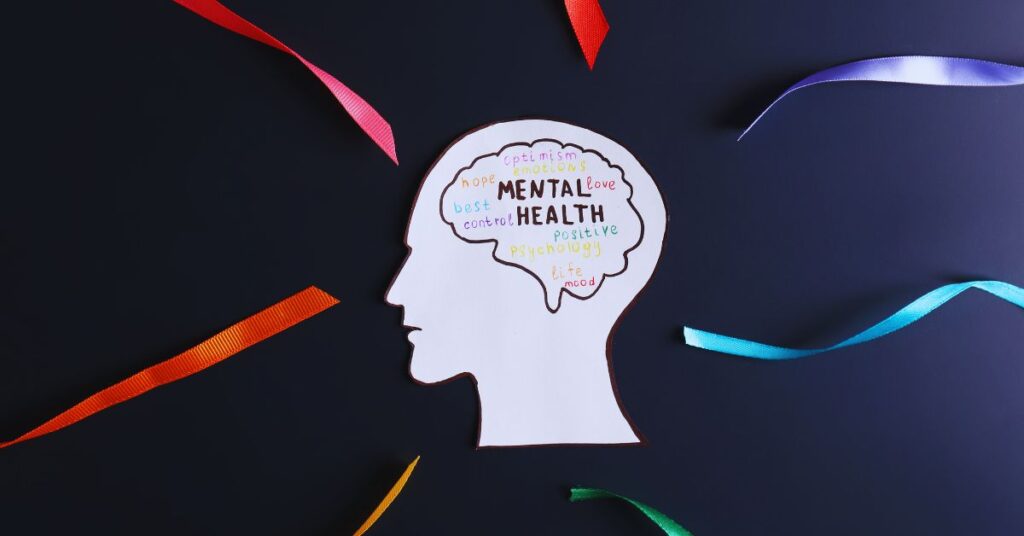Feeling comfort in depression can seem strange. Yet, many find it familiar and even soothing.
It may sound unusual, but there’s a reason behind it. Depression is a heavy weight, but it can also be a known place. When life feels unpredictable, depression can offer a twisted sense of stability. You might feel safe in its familiarity.
This doesn’t mean it’s good or healthy. It just means it’s a place your mind knows well. Understanding why you find comfort in depression is the first step to breaking its hold. In this blog, we will explore the reasons behind this comfort and how to shift towards a healthier mindset. It’s essential to recognize these patterns to move forward.
Topic of Contents
ToggleThe Nature Of Depression
Depression is a complex and often misunderstood mental health condition. It affects millions worldwide. Many find an odd comfort in their depression. This comfort can come from the familiarity of their symptoms. Understanding the nature of depression helps us see why this happens.
Symptoms And Signs
Depression shows up in many ways. Some common symptoms and signs include:
- Persistent sad or empty mood
- Loss of interest in activities
- Changes in appetite
- Sleep disturbances
- Fatigue or lack of energy
- Feelings of worthlessness or guilt
- Difficulty concentrating
- Thoughts of death or suicide
These symptoms can vary in severity. Some people experience mild symptoms. Others have severe, life-altering symptoms. Recognizing these signs is the first step to understanding depression.
Emotional Impact
The emotional impact of depression is profound. It affects how a person feels, thinks, and handles daily activities. Common emotional effects include:
- Overwhelming sadness
- Loss of pleasure in daily life
- Intense feelings of hopelessness
- Constant anxiety or irritability
Depression can make even simple tasks feel impossible. People often feel isolated. They may withdraw from friends and family. This isolation can create a vicious cycle. The more isolated they feel, the deeper their depression may become.
People find comfort in depression because it becomes their norm. It feels familiar and predictable. This familiarity can be less scary than the unknown. Understanding this helps in breaking the cycle of depression.
Comfort In Familiarity
Depression can feel like a heavy blanket, covering us in a known shade of gray. This feeling, though painful, can also bring a strange sense of comfort. Familiarity provides a predictable space, reducing the fear of the unknown. Let’s explore why we might find solace in this state.
Routine And Predictability
Depression often comes with a set of routines. These routines, though not always healthy, can create a sense of predictability. Knowing what to expect each day can reduce anxiety. It feels like a safe harbor in a stormy sea.
- Waking up at the same time
- Engaging in repetitive activities
- Avoiding social interactions
These routines might limit our experiences but they also protect us from unexpected changes. Predictability means fewer surprises and less stress. It’s a way to manage the overwhelming feelings that come with depression.
Avoiding Uncertainty
Uncertainty can be terrifying. Depression provides an excuse to avoid new experiences. This avoidance can feel like a shield, protecting us from potential failure or rejection.
- Not applying for jobs
- Skipping social events
- Staying in familiar environments
By staying within these boundaries, we feel safer. The fear of the unknown is daunting. Depression offers a way to stay away from it. This avoidance might seem like a comfort, but it limits our growth.
| Aspect | Comforting Element |
|---|---|
| Routine | Predictability |
| Avoidance | Shield from Uncertainty |
We find comfort in the known patterns of depression. This familiarity can provide a temporary sense of safety. Recognizing this can help us understand our feelings and start the journey toward healing.
Psychological Mechanisms
Depression can be a perplexing state of mind. Many people wonder why they feel a strange comfort in their depressive thoughts and emotions. The answer lies in various psychological mechanisms that play a significant role in this phenomenon.
Self-protection
One key psychological mechanism is self-protection. Depression can serve as a defense mechanism. It shields us from further emotional pain. When someone feels overwhelmed, depression can act as a barrier. This barrier prevents new hurtful experiences from affecting them. It creates a familiar environment, where the person feels safe. The predictability of depressive thoughts offers a sense of control. This feeling of control can be oddly comforting.
Cognitive Biases
Cognitive biases also contribute to finding comfort in depression. These biases distort our perception. They lead us to focus on negative aspects. This focus reinforces depressive thoughts. For example, a person might have a negativity bias. This means they pay more attention to negative events. They overlook positive experiences. This bias makes the negative thoughts more prominent. Repeated focus on these thoughts creates a false sense of reality. This reality feels familiar, and thus, comforting.
Another cognitive bias is the confirmation bias. It makes people seek information that confirms their existing beliefs. If someone believes they are worthless, they look for evidence to support this belief. This search for confirmation solidifies their depressive state. The consistency in their thoughts and beliefs provides a sense of stability. This stability, even if negative, can be comforting.
Social Factors
Depression often feels like a heavy burden. Yet, some find comfort in it. This paradox can be explained by social factors. These factors include support systems and social withdrawal. Let’s explore how these elements contribute to comfort in depression.
Support Systems
A strong support system can make a world of difference. Family and friends provide emotional support. They listen without judgment. This empathy creates a safe space. In this space, people feel understood and accepted.
Support groups are also beneficial. They connect individuals with similar experiences. Sharing struggles with others reduces feelings of isolation. It fosters a sense of belonging. This connection can be comforting. It shows that one is not alone in their battle.
Therapists and counselors are crucial. They offer professional guidance. Their expertise helps individuals navigate their emotions. This guidance provides structure and clarity. It offers hope and reassurance. Knowing there is help available can be a comfort.
Social Withdrawal
Social withdrawal is a common symptom of depression. This may seem counterintuitive, but it can bring comfort. Isolation allows individuals to avoid stressful interactions. It provides a break from social pressures.
Being alone can be less overwhelming. It allows for self-reflection. This introspection can be therapeutic. It helps individuals process their emotions. It offers a chance to recharge and regroup.
Additionally, social withdrawal can create a sense of control. It limits external influences. This control can be empowering. It reduces the unpredictability of social interactions. This predictability can be comforting.
While social withdrawal can offer short-term comfort, it’s important to balance it. Engaging with others is essential. It helps maintain social connections. These connections provide long-term support and comfort.
Biological Influences
Depression is more than just sadness. It can feel comforting for many. Understanding the biological influences behind this can help explain why. Our brains and genes play a significant role.
Brain Chemistry
The brain produces chemicals called neurotransmitters. These chemicals impact mood and emotions. In depression, certain neurotransmitters, like serotonin and dopamine, may be imbalanced. This imbalance can create a sense of comfort in depressive states. The brain gets used to these levels, creating a new “normal.” This can make it hard to break out of the cycle of depression.
Genetic Predispositions
Genetics also play a role in depression. Family history of depression increases the risk. Certain genes make people more susceptible. These genes can affect how the brain processes emotions. They can also influence how our bodies respond to stress. Knowing this can help us understand why depression feels comforting. It is not just in our minds; it is in our genes.
Coping Strategies
Dealing with depression can be challenging. Many find comfort in their depressive states due to familiarity. But it is essential to adopt effective coping strategies that can provide healthier alternatives. Here, we explore various coping strategies to help navigate through depression.
Healthy Outlets
Engaging in healthy outlets can significantly impact mental well-being. These activities help channel negative energy into something positive and constructive. Some effective healthy outlets include:
- Exercise: Physical activity releases endorphins, which improve mood and reduce stress.
- Creative Hobbies: Painting, writing, or playing music can be therapeutic.
- Social Interaction: Spending time with friends or family provides support and reduces feelings of isolation.
- Mindfulness Practices: Meditation and yoga help in calming the mind and promoting inner peace.
Therapeutic Approaches
Seeking professional help can be one of the most effective ways to manage depression. Various therapeutic approaches can provide long-term relief and aid in understanding the root causes of depression. Some common therapeutic approaches include:
- Cognitive Behavioral Therapy (CBT): This therapy focuses on changing negative thought patterns.
- Talk Therapy: Speaking with a therapist can help process emotions and thoughts.
- Medication: Antidepressants may be prescribed to help balance brain chemicals.
- Group Therapy: Sharing experiences with others facing similar challenges can be comforting.
Combining these coping strategies can create a balanced approach to managing depression. Adopting healthy outlets and therapeutic approaches can lead to a more fulfilling life.
Breaking The Cycle
Depression often feels like a heavy blanket that is hard to shake off. It can feel comforting because it is familiar. But to find true relief, one must break this cycle. This involves recognizing patterns, seeking help, and making small, manageable changes.
Recognizing Patterns
Understanding the patterns of your depression is key. Do certain events trigger a depressive episode? Is there a specific time of day when you feel worse? Keeping a journal can help identify these patterns. Write down your thoughts and feelings daily. Over time, you will notice trends and triggers.
| Trigger | Emotional Response | Physical Response |
|---|---|---|
| Stress at work | Feelings of hopelessness | Fatigue, headaches |
| Conflict with family | Anger, sadness | Loss of appetite |
Recognizing these patterns is the first step to breaking the cycle. Once you know what triggers your depression, you can take steps to manage these triggers.
Seeking Help
Do not hesitate to seek professional help. Therapists can provide tools to cope with depression. They can teach you techniques such as cognitive-behavioral therapy (CBT) or mindfulness.
- Therapy: Professional guidance to understand and manage your thoughts.
- Medication: Sometimes necessary to balance chemicals in your brain.
- Support Groups: Share experiences with others who understand.
Seeking help is not a sign of weakness. It is a step toward regaining control. It shows strength and determination to improve your mental health.
Personal Stories
Many find comfort in depression. It’s a paradox that may seem strange. Yet, personal stories shed light on this complex emotion. By sharing experiences, we gain understanding. These stories reveal how depression becomes a familiar companion. They offer insights into why some find solace in the darkness. The following sections explore these narratives.
Experiences Shared
John’s story is one of many. He describes depression as a constant presence. It’s like an old friend, always there. For John, the predictability brings comfort. He knows what to expect. This makes the unknown less frightening. Sarah, another voice, shares a similar tale. Depression, for her, is a quiet place. A place where she can retreat. It offers a break from life’s chaos. These shared experiences help others feel less alone.
Lessons Learned
Through these stories, we learn important lessons. One lesson is about acceptance. Many find peace by accepting their depression. They stop fighting it. Instead, they learn to live with it. This acceptance reduces fear and anxiety. Another lesson is about self-awareness. Depression forces people to look inward. They understand their emotions better. These lessons show that even in darkness, there is light. Comfort can be found in the most unexpected places.
Frequently Asked Questions
What Causes Comfort In Depression?
Depression can create a familiar emotional state. This predictability might feel comforting, reducing the anxiety of the unknown.
Is It Normal To Find Comfort In Depression?
Yes, it’s not uncommon. Some individuals find a strange sense of security in their depressive state.
How Can I Break The Cycle Of Comfort In Depression?
Seeking therapy, practicing mindfulness, and engaging in physical activity can help break this cycle.
Why Do Depressive States Feel Familiar?
Depressive states can feel familiar due to their repetitive nature, making them seem safer than change.
Conclusion
Finding comfort in depression can be a complex emotion. It often stems from familiarity and a sense of control. Breaking free from this cycle requires patience and support. Small steps can lead to significant changes. Reach out to friends and family.
Seek professional help if needed. Remember, you are not alone. Embrace new coping strategies. Focus on positive activities. A brighter outlook is within reach. Prioritize self-care and mental health. You deserve happiness and peace.







